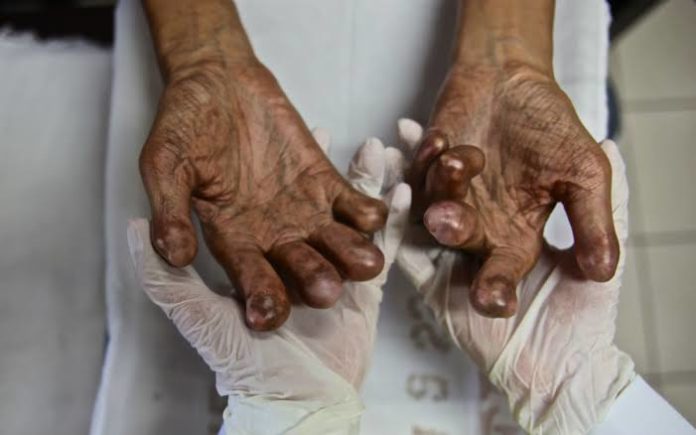World Desk
Hundreds of thousands of women and children affected by leprosy suffer from informal segregation and institutionalized neglect and governments must put an end to it, a UN human rights expert said in comments on the occasion of World Leprosy Day.
Too many women and children affected by leprosy – also known as Hansen’s disease – are victims of stereotypes, physical and verbal abuse, delays of diagnosis and lack of adequate care, regretted Alice Cruz, UN Special Rapporteur on the elimination of discrimination against persons affected by leprosy and their family members.
“Affected people and their family members have been systematically subjected to dehumanization in different cultural backdrops,” Cruz said. “Stigmatization remains institutionalized in the States’ architecture and functioning: more than 50 countries in the world keep hundreds of discriminatory laws against leprosy-affected people. Discriminatory practices at the States’ administration endure,” she added.
According to her last report, too many cases of affected women and children are underreported due to institutional reasons. Children appear to be more prone to leprosy due to their immature immune systems but about 10 to 20 percent of them stop taking medicines because available treatments are not appropriate for their age. Almost half of affected women experience depression and/or suicidal thoughts.
The UN expert expressed concerns about the “complete lack of specific plans by States to address the particular needs of women and children affected by leprosy and to end discrimination and violence against them”.
“Affected people are not only those left furthest behind, they are actively being kept out of agenda, out of history,” she added.
Cruz welcomed improvements in the response of some Governments, including in awareness-raising activities, campaigns to improve detection and early diagnosis, and access to treatment.
The UN expert nevertheless regretted that too many States with high incidence rate and with discriminatory laws did not reply to her requests for visits or did not arrange the visit yet after several months of their acceptance of her request.
“States must abolish all discriminatory laws and implement the Principles and guidelines for the elimination of discrimination against persons affected by leprosy and their family members,” Cruz said. She also called for more inclusion of leprosy-affected women and children in the decision-making processes impacting their lives.













